So Long, Marianne
Jamie Brisick
May 7, 2019
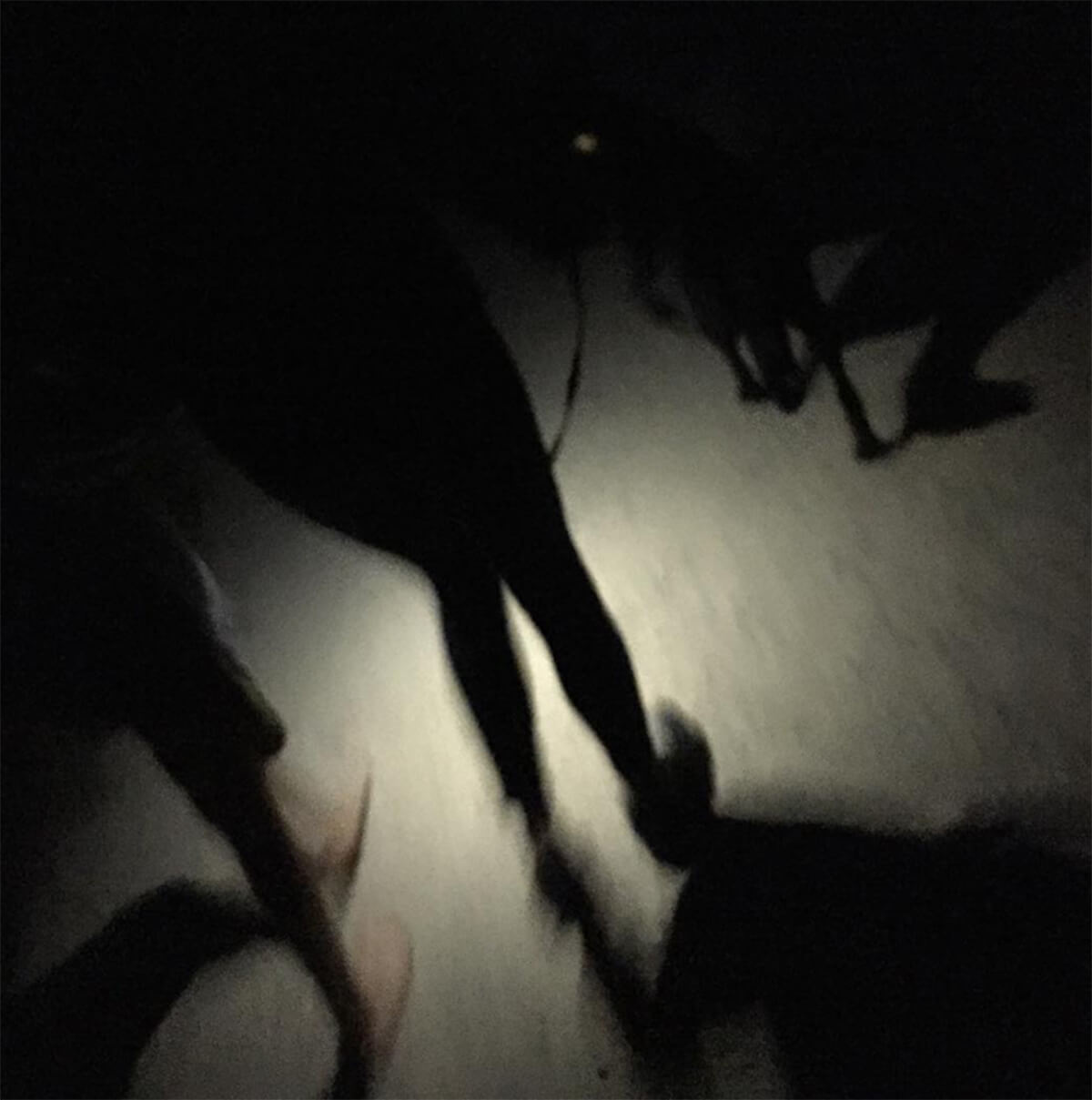
Nick and Marianne lived in a SoHo loft with their Chihuahua Candy, parakeet Lulu, and floor-to-ceiling shelves of books and CDs. A swing hung in the center of what doubled as their living room: a jumble of expensive furniture surrounded by a small forest of ferns and palms.
Marianne had thousands of CDs. She was big into American indie rock—the Strokes, Modest Mouse, Yeah Yeah Yeahs, and Cat Power got lots of play on her high-end sound system. She collected first edition books, and on, say, an afternoon grocery run to Gourmet Garage, she might randomly decide to pop in on one of her rare bookseller friends in the West Village, dump $1000 on a single book, stop off for sushi on Thompson Street, pick up something at Marc Jacobs on Mercer, and round out the day with a few glasses of Rioja at Ñ on Crosby. Marianne was a model who supposedly made $25K a day. She worked about 20 or 30 days a year.
Born and raised in Sydney, Nick was a photographer who shot mostly fashion. Often there’d be a fresh-faced model posing in front of the seamless backdrop in their loft. A sturdy bloke with big hands and piercing eyes, Nick worked quietly and intensely while Marianne put the girls at ease with a maternal sweetness. She assisted Nick with styling and art direction, and sometimes hair and makeup. They seemed to make a great team.
Nick had moved to NYC to pursue his photography dreams. When I first met him a few years earlier he lived alone in a spartan midtown studio. He was focused and disciplined and by no means the partying type. With Marianne he’d become someone else.
Several nights a week they threw rollicking dinner parties. They got around town in Marianne’s red Land Cruiser, which they parked in a lot that cost more than my rent. Their outings typically included Candy and Lulu. They got lots of parking tickets. They traveled often. Hanging from their bathroom wall was a framed photo that Nick had taken of Marianne during a trip to Costa Rica. She lies naked on a black sand beach, the turquoise sea licking her toes, the sun glistening on her pale white skin. Her blue-eyed gaze is savage.
I was impressed. I’d moved from LA to New York to pursue my writing more seriously. I’d recently met and moved in with Gisela, a filmmaker from São Paulo. We were just starting out. If we could pull it off, if hard work and luck and all the rest of it could come together, we might have a lifestyle that looked something like Nick and Marianne’s.
Or so I thought.
“She sleeps till noon, lights a cigarette, wants to fuck, wants a glass of rosé, and wants me to join in,” Nick confided in me, as we walked Marianne’s Chihuahua through SoHo. “I don’t know how it happened, but my life has become her life.”
He told me that his career was at a standstill. Those girls he was shooting, they were not assignments, they were tests for new models to build their portfolios. He hadn’t had a paying job in nearly six months. He was broke.
So Nick was doing something about it. He was going back to Sydney to see some agents and clients, and, from what I could tell, to reconnect with himself.
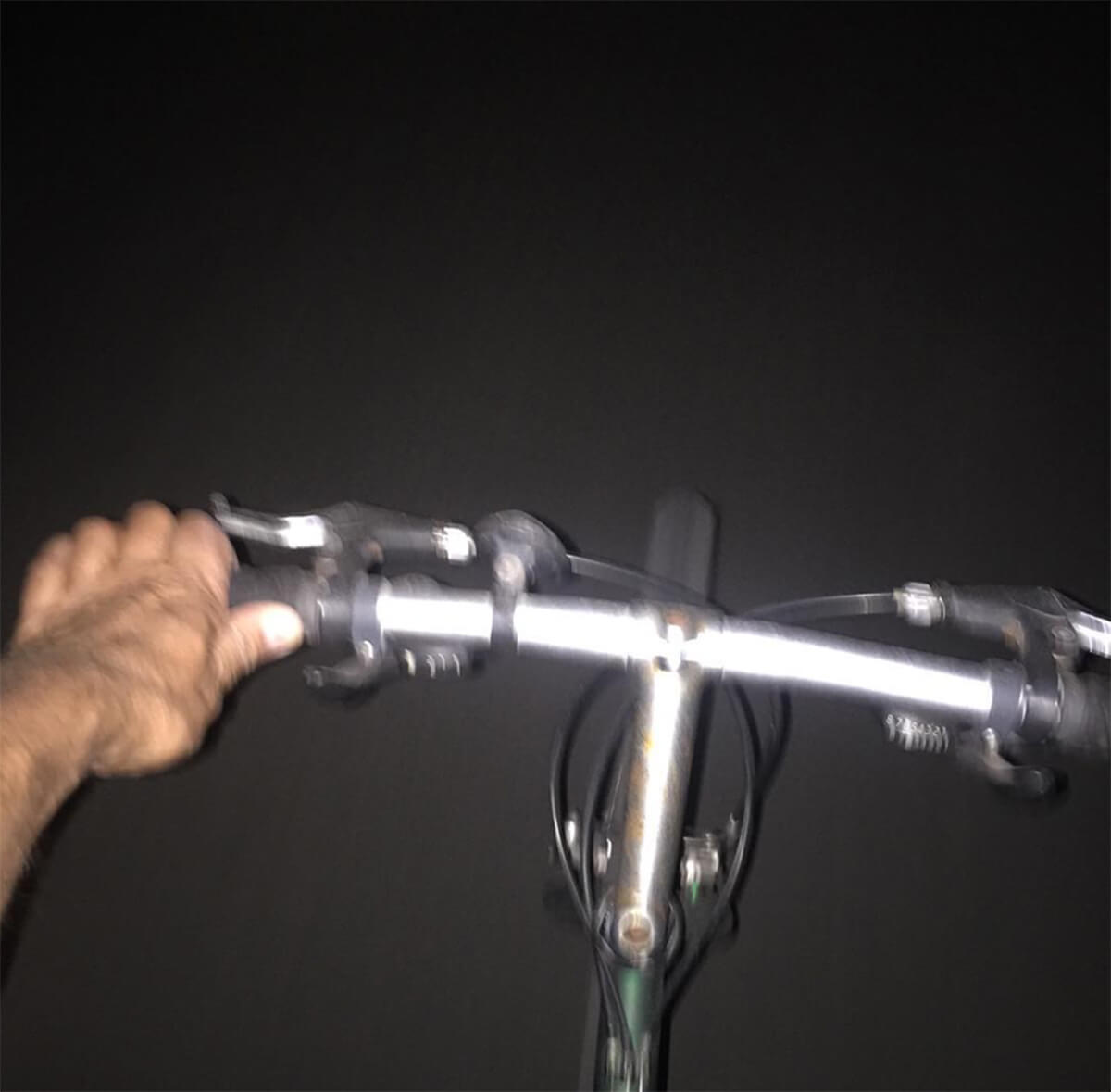
The night before his departure, Marianne threw him a send-off dinner. About a dozen of us gathered at their Last Supper-like table with candles and flowers and heaping plates of roast chicken and mashed sweet potatoes and maple roasted Brussels sprouts with bacon. There were many bottles of good wine, and several toasts, and a joint passed around the table to go with the tiramisu from Dean & DeLuca. There was Petra from Berlin and Dominique from Lyon and Fernanda from Buenos Aires, all Marianne’s model friends. Gisela was not with us, she was in São Paulo visiting her mother. In what I think of as the crescendo to the night, there was Cat Power on the stereo, and the girls sprawled and stoned on the leather sofa, and Nick and Marianne frolicking in the swing, setting off a fit of barking and shrieking from Candy and Lulu.
I’d said my goodbyes, wished Nick good luck on his trip, and was waiting for the elevator when he walked over.
“Almost forgot. You should take care of this for me while I’m gone.” From behind a stack of boxes Nick rolled out his Trek mountain bike. It was matte black and tricked out with all the extras. “It’s a great ride,” he said. Before I could thank him he plucked his orange North Face parka from the hook and thrust it in my hands. “Take this too. You’ll be needing it.”
And so the following morning I woke up with a bike, a parka, and, as I discovered in the parka’s pockets, gloves and a beanie.
I was a surfer. I’d been craving ocean. In the first couple months of living in New York, I’d managed to convince myself that there was a kind of metaphorical surfing that happened on the streets. You danced with your fellow walkers the way you did waves. The edge of the sidewalk was a lip, the sharp turn from street to avenue a tight-arced slash. There was a bounce and a pulse and, if you walked fast enough, an adrenaline rush. But a year later that notion had worn thin. I was losing my physical fitness, my mojo, my talent for self-delusion.
So I set off on these long bike rides. Typically in the afternoon, occasionally in the morning, I’d wheel Nick’s bike out the foyer and down the stoop of our 15th Street apartment, slide on my headphones, press PLAY on my mustard yellow Walkman, and go out and explore the city.
It was musical on many fronts. There was the music that resided in me regardless of what played through the headphones: my mythical New York music, triggered by geography. Riding past Sutton Place brought on Lou Reed’s “Sally Can’t Dance.” Peddling down Broadway, I heard Television’s Tom Verlaine croon Broadway looked so medieval in “Venus.” Rounding the top of Central Park, I less heard than felt in some 1973 part of myself “Across 110th Street” by Bobby Womack.
It worked on other levels as well. Cruising past 7th and Avenue A, I heard in my head Evan Dando of the Lemonheads singing Don’t wanna get stoned, But I don’t wanna not get stoned—not because of a reference in the song, but because I’d recently seen Evan Dando himself standing on that corner, clad in pajamas and barefoot, wobbly and very likely stoned.
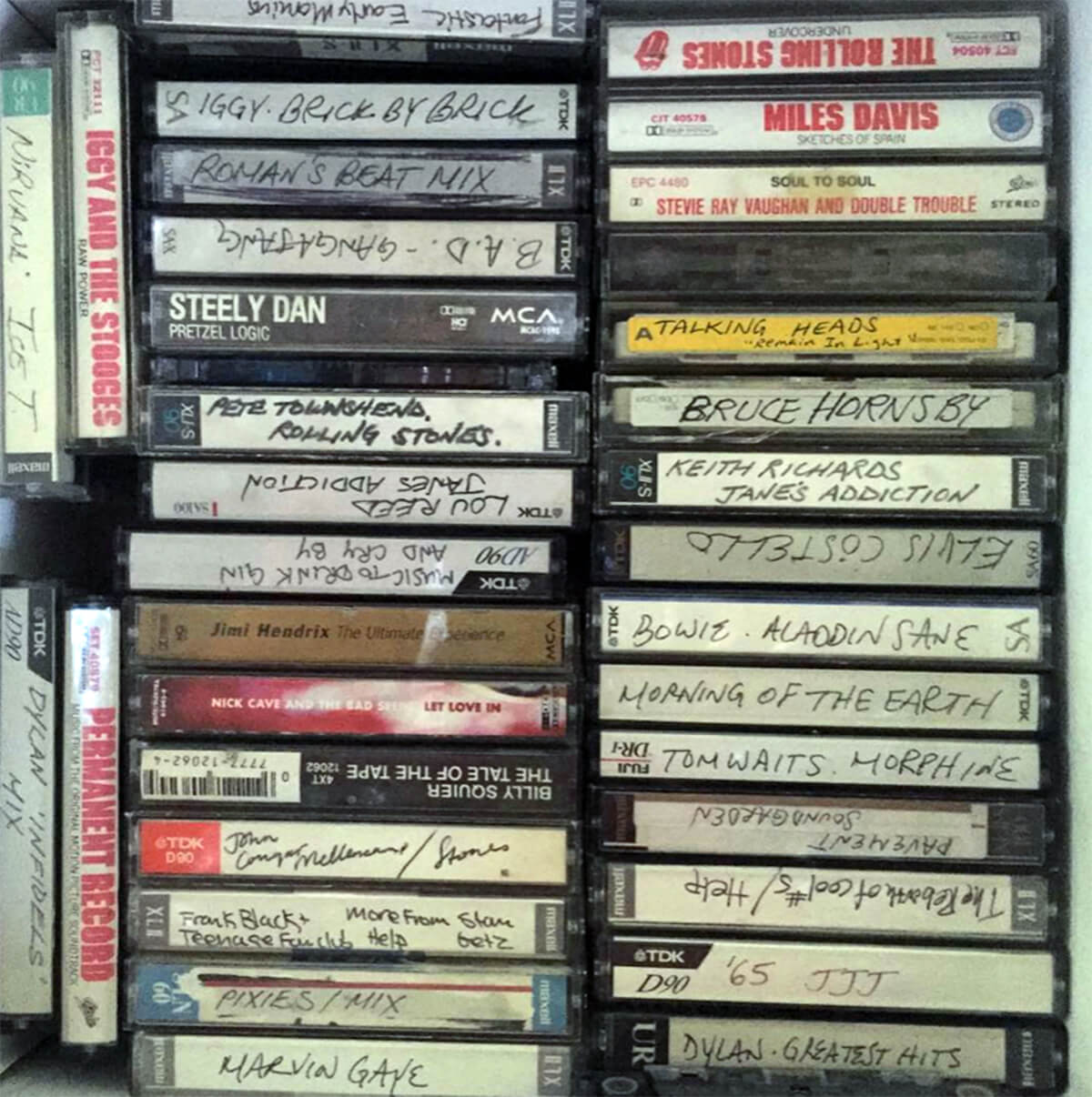
Passing St. Mark’s Bookshop, I was reminded of a story my friend John told me. He’d just bought a book by Lou Reed at St. Mark’s when he saw Lou himself walking down the street. Lou famously hated being approached by fans, but it seemed almost meant to be, so John approached him anyway.
“Sorry to bug you,” he said, “but this is too strange. I just bought this book a few minutes ago, and here you are. I was wondering if you’d sign it for me.”
Lou nodded yes. John handed him the book and a pen.
“Oh, and my name’s John,” he added.
Lou signed the book and handed it and the pen back to John with a half-smile. John thanked him, carried on down the street, rounded the corner, and opened the book:
Hey John,
Fuck you.
Lou Reed
Then there was the actual music that played through my headphones. When I moved from LA to New York I’d brought over a faded red Case Logic with about a dozen old cassettes. One was Bowie’s self-titled debut album, from 1967, in which he taps a childlike innocence and fragility. These songs animated what had become my usual ride: up First Avenue, left at 57th, into the park and away I peddled amid the nut carts and horse-and-carriages and rolling hills, Bowie singing about Uncle Arthur the mama’s boy and Jack Frost who stole his girl and “There is a happy land where only children live.”
This was the winter of Christo and Jeanne-Claude’s “The Gates.” Soaring along the winding trails, passing under those vibrant, saffron fabrics, I felt a certain aspirational nudge. The city enlarged. My mood brightened. I forgot that Gisela and I were late on our rent, that our tiny shithole of an apartment smelled of roach bait and sat adjacent to a boiler room that made jolting maritime sounds, as if the building were a ship crashing into an iceberg. I forgot that I couldn’t get past 4:00 p.m. without a spliff, that my writing was going nowhere. I felt one with the granite rocks, the skeletal trees, the ice-covered lakes. I felt cradled by the walls of my happy valley, which, of course, were the tall buildings on either side of the park.
Passing a group of workers in fluoro-orange vests and chunky boots, I remembered something my friend DK told me. A Florida native, he’d moved to New York to pursue an acting career. He studied at the Actor’s Studio, did off-Broadway plays in the East Village. But it was working as a high-rise window washer, “serving the city” as he put it, that brought him the strongest sense of connection.
“We’re programmed to think that New York exists in some lofty, realizing-our-dreams sort of place,” he told me. “But really it’s right there at street level, it’s in those moments where you’re all crowded into a bar watching some game on the screen that you find the true soul of New York.”
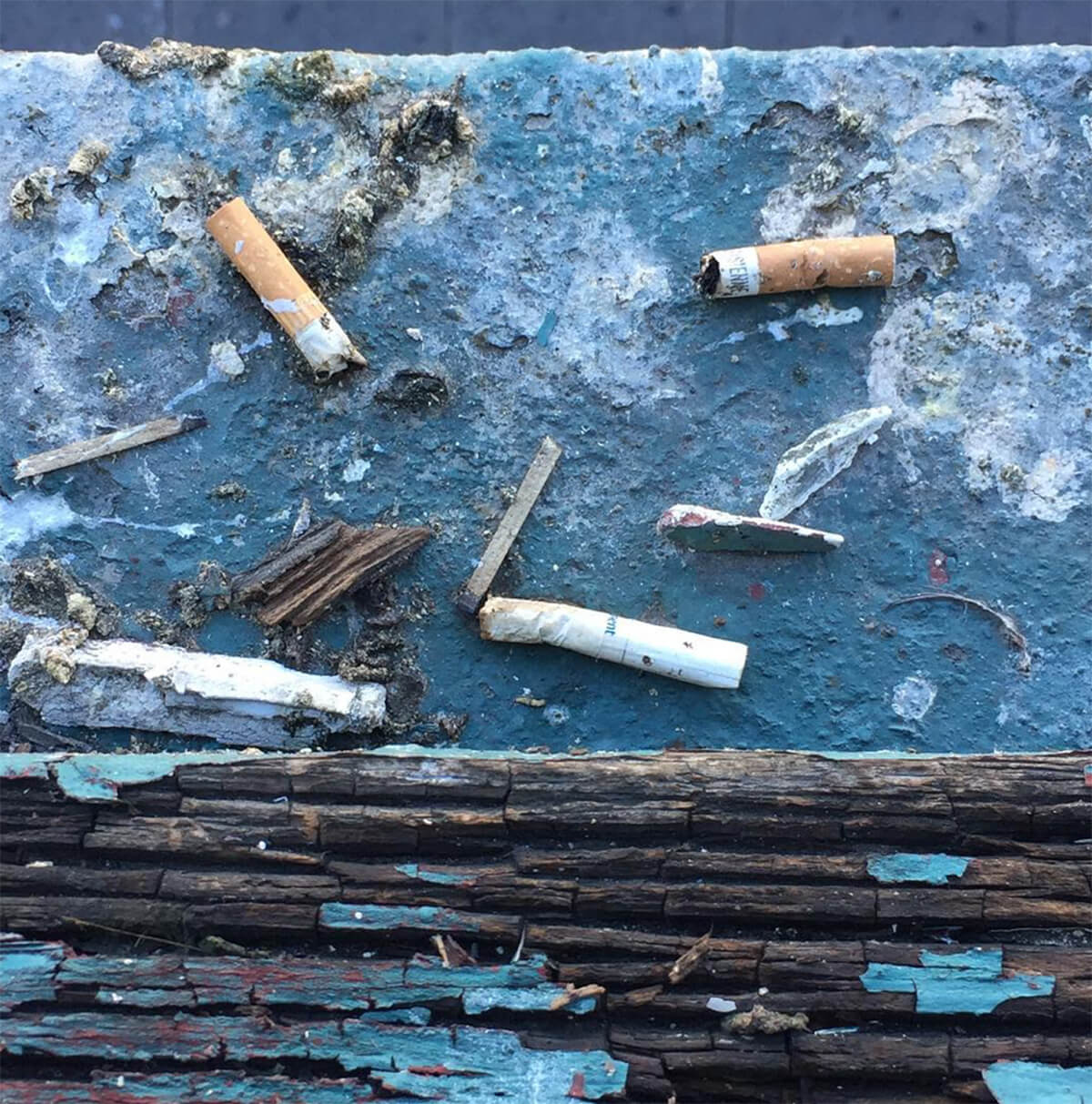
I experienced something like this on my rides. Not so much in Central Park, but in what was the home stretch, on Second Avenue, where Midtown slopes towards Downtown. Maybe I’d worked my heart rate and neurotransmitters up to some empathetic place, maybe it was the birdlike glide at which I flew down that street. I felt opened up, receptive. I anticipated the pedestrian’s step off the curb. I could read from their body language who would hail the cab hovering a couple of car lengths in front of me, and in turn that cab’s brake lights and hard swerve. I possessed almost animal instincts. Like I’d peddled myself some millisecond into the future, and knew what the people and cars were going to do before they did.
One gray and misty afternoon, I was peddling hard down the slope of Second Avenue just below 34th, The Essential Leonard Cohen on my Walkman, my head bobbing to that twangy guitar in “Hey, That’s No Way To Say Goodbye.” I was deep in the music. The song finished, there was a hissy pause, then those first loving strums and Come over to the window my little darling. I knew “So Long, Marianne” well—I knew every word. But the Marianne that took shape in my head as the song grew was Nick’s Marianne. I saw her porcelain skin, her pouty lips, the way the cigarette had shaped her posture and mannerisms. I also saw my orange parka-clad forearms and gray-gloved hands gripping the handlebars of Nick’s fancy mountain bike.
I hadn’t spoken to Nick since his departure nearly a month earlier, but I’d seen Marianne a few times. She’d been kind to Gisela and me, inviting us over for dinner, giving Gisela some of her old clothes. She had a surprise planned for Nick’s return. She’d hired a handyman to build an office for him in their loft, and she wanted my take on what he might like regarding the desk, shelving, and built-in light table.
In Nick’s absence, I’d learned more about his and Marianne’s relationship from a mutual friend. Nick had been neighbors with Marianne and Paulo, her ex, a Spanish actor and serial philanderer. Marianne was very much aware of this latter part, and while Paulo was off shooting a movie in London she’d taken to regular wine-and-cigarette gatherings on the fire escape with Nick. One thing led to another.
“Nick hadn’t had a girl in months, maybe years, then all a sudden he’s got this supermodel prancing around the bedroom,” said our mutual friend. “You know how that goes. You get drunk on the stuff. You forget who you are.”
I remembered the morning I’d gone to visit Nick and found him on hands and knees under the table, picking up the broken wine glass that Marianne had thrown at him the night before. And his description of flying to Texas for Christmas to meet Marianne’s parents for the first time: “We’re at JFK, it’s a total shit show, our flight gets delayed for like two hours, and I’ve got Candy on my lap, and Lulu on the seat next to me, and Marianne’s there in her Ugg boots, sipping some six-dollar macchiato and yapping into her mobile with her agent. I mean fuuuck!”
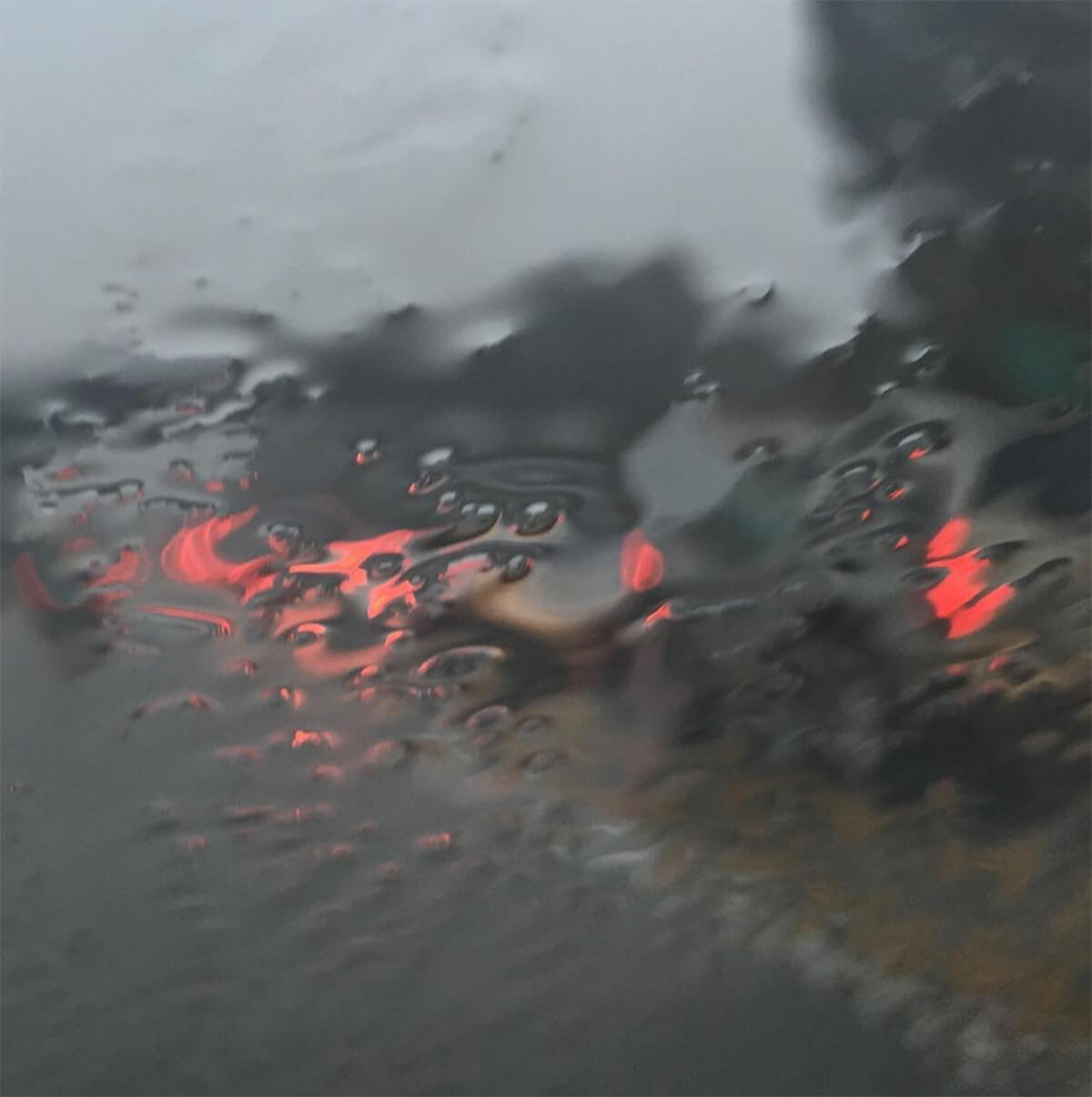
I knew about this stuff. So often I’d presented some 2.0 version of myself that’d be impossible to keep up. “The best relationships start with Taco Bell and a premature ejaculation,” I wrote in my journal in my mid-twenties. Or even if I was being myself, I’d grow tired of that particular version of myself, and the more time spent with my partner, the more it’d reinforce that version, until I was disgusted with myself, and, by extension, my partner.
I’d observed a pattern. Relationship starts rosily. We’re in love. Then we’re spending tons of time together, and I’m being that guy, that unsustainable guy. Slowly my girlfriend grows an undetectable ailment—in Erin’s case back pain, in Terry’s case a bad knee. My insensitivity becomes a problem. Then come the fights. Then comes, in the case of Terry, a drunk and enraged fight, and me punching the framed print of Dali’s “Crucifixion (Corpus Hypercubus),” and me, like Nick, on hands and knees picking broken glass off the floor. I wondered if bad relationships were a form of procrastination.
I passed the dimly-lit pizza place where Gisela and I enjoyed one of those meals that seemed somehow to be a leap forward in our relationship. I rounded the Stuyvesant Square Park where kids played soccer on the lawn and old junkies nodded out on benches.
I knew so little. I had no idea that a few days later I’d get a call from Marianne. “He’s not coming back,” she’d say through sobs. “Nick’s staying in Australia. He broke up with me.” Gisela and I would race over there to find Marianne collapsed on the sofa in her bathrobe, face all puffy from crying. I did not know that Marianne’s heartbreak would soon turn vindictive, and that Nick would return to New York that summer to a pending lawsuit—Marianne had itemized every last expense they’d incurred in their time together, and demanded half. I did not know that that sad little apartment I shared with Gisela, and that starving artist life we so badly wanted to lift ourselves out of, would, nearly two decades later, feel like song lyrics.
At that moment I had only Leonard in my ear, and Nick on my mind, and the rush of Second Avenue in front of me.